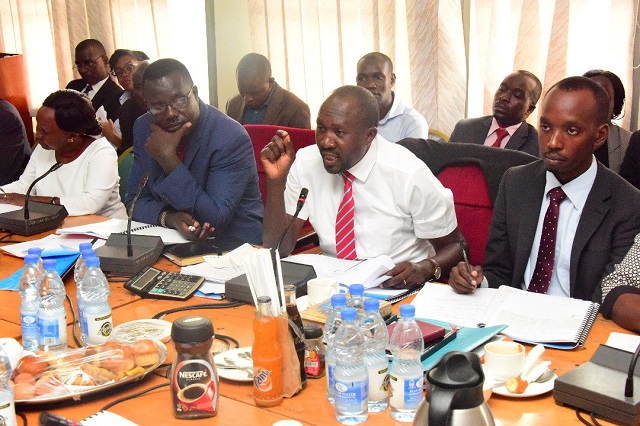
Kampala, Uganda | THE INDEPENDENT | Parliament’s Public Accounts Committee (PAC) has grilled officials from the Ministry of Public Service over delayed reforms of the current Public Service Pensions Scheme.
Led by Catherine Bitarakwate the Ministry’s Permanent Secretary, the officials on Tuesday appeared before the committee to answer audit queries for the financial year 2018/2019.
In his report, Auditor General John Muwanga reported that Cabinet acknowledged the need to reform the current Scheme and under the critical changes approved as part of the conversion process was to convert the Scheme from a defined contribution to a defined benefits pension plan.
“Under the new arrangement, the current non-contributory pension scheme would be converted to a new contributory defined benefit pension plan based on payroll contributions covering the teaching, traditional, police, prisons, local government service employees and employees on contract.
To operationalize this, the government set out to establish a Public Service Pensions Fund that would be separated from the Ministry and regulated by the Uganda Retirement Benefits Regulatory Authority (UBRA),” reads part of the audit report.
The auditor general expressed concern that failure to operationalize the pension fund implies that government will continue to meet pension costs for all public servants which is a massive cost and against the spirit of the reforms where civil servants contribute to their pensions.
Muwanga says that at the time of the audit, the proposed reforms were on course but no budget provision had been made for the activities even after Cabinet recommended a provision of Shillings 15 billion as start-up costs and Shillings 13 billion as recurrent costs for the fund.
Tasked by PAC chairperson Nathan Nandala Mafabi on the delayed operationalization of the Pensions Fund, Bitarakwate told MPs that her Ministry embarked on reforming the current Scheme since 2003 and that so far, several activities towards the reform have been accomplished including consultations of key stakeholders.
She added that the paper on the principles of legislation is before Cabinet for approval as well as the draft Public Service Pension Bill, 2018.
Bitarakwate further explained that in the financial year 2020/2021, the Ministry has planned to build the capacity of the reform task team members in pension management.
She says that one of the key priority areas identified by the Ministry is to conduct an actuarial valuation based on the current pay, inflationary rate, life expectancy among others to inform accurate projections and design of the scheme.
According to the Permanent Secretary, the pre-reform activities are critical for the establishment of the Public Service Pensions Fund in financial year 2021/2022 and requires Shillings 11 billion which has remained unfunded.
******
URN
 The Independent Uganda: You get the Truth we Pay the Price
The Independent Uganda: You get the Truth we Pay the Price



